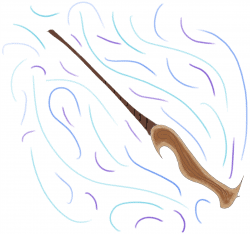It has become increasingly common for our favourite celebrities and artists to let us down, and in the case of J.K. Rowling’s recent responses to controversies surrounding Fantastic Beasts and Where to Find Them: The Crimes of Grindelwald, the author’s conduct might actually be damaging to the fictional universe she created.
Like many, I have been a devoted Harry Potter fan since I was a small child. As a gift for graduating high school, my aunt sent me on a trip to the Wizarding World of Harry Potter in Orlando, where I cried many happy tears. I love the franchise.
I was ecstatic to discover that there would be a spin-off of the original books in the form of a prequel film series: Fantastic Beasts and Where to Find Them. The second of five anticipated installments of Fantastic Beasts will premier on Nov. 16, but some of its canon-bending elements have already been points of contention for fans.
Lately, it feels like the behaviour of J.K. Rowling, the author of the life-shaping series, has become increasingly ignorant. Two particular examples have stuck out to fans: First is Rowling’s mishandling of the canonical details of her own characters. Second is her continued support for actor Johnny Depp, despite recent allegations against him.
In 2007, J.K. Rowling announced that Professor Dumbledore was gay. However, now that there is a spin-off franchise in which young Dumbledore will play a major role, the controversy surrounding his sexuality has since been exacerbated.
Considering that Rowling herself has said that Dumbledore was in love with Gellert Grindelwald, the last serious threat to the wizarding world before Lord Voldemort, and this next installment centres heavily around Grindelwald, it seems that this relationship should be a plot focus of the finished film.
It feels as though Rowling only decided to announce that Dumbledore was gay in the first place to score credibility with the diverse fandom of the series. Dumbledore is the only canonically queer character in the series, and he really isn’t, as his sexuality isn’t mentioned in any of the books or movies released to date. It is as if Rowling wants the diversity points but does not want to actually have this detail present in the text of her work.
Perhaps Rowling’s most egregious action of late is her continued support of actor Johnny Depp. In 2016, a video and text messages came out suggesting that Depp exhibited abusive behaviour towards his then-wife Amber Heard. Later that year, the first Fantastic Beasts movie came out, and many fans were shocked to see that Depp still made an appearance.
In the coming sequel, Depp will play a much bigger role, and many fans have called for his character to be recast. Rowling has stood by the decision to keep him and has continued to defend him since the backlash began.
It is certainly disquieting to see a man caught on camera showing such behaviour and still facing no repercussions. It is also disappointing to see this defence coming from a woman who helped shape the lives of so many young people.
As a Harry Potter fan, I feel conflicted about the upcoming Fantastic Beasts sequel. It really forces viewers to ask themselves whether we should separate the art from the artist. I almost always say no because artists directly benefit when their art is consumed.
But as a lifelong Harry Potter fan, it almost feels like giving up a part of my childhood or betraying something that has been a constant throughout my life. And the rest of the cast didn’t do anything wrong, after all. But then again, aren’t they complicit?
I would recommend finding some other way to watch the movie besides paying for it in theatres. To watch the rest of this franchise with a clear conscience, it seems that fans must be able to separate the story from the artists. However, if people continue to do this, artists will continue to profit regardless of their behaviour.
—
Amber Adrian-Jackson
Graphic: Wei Soong Lau
Leave a Reply